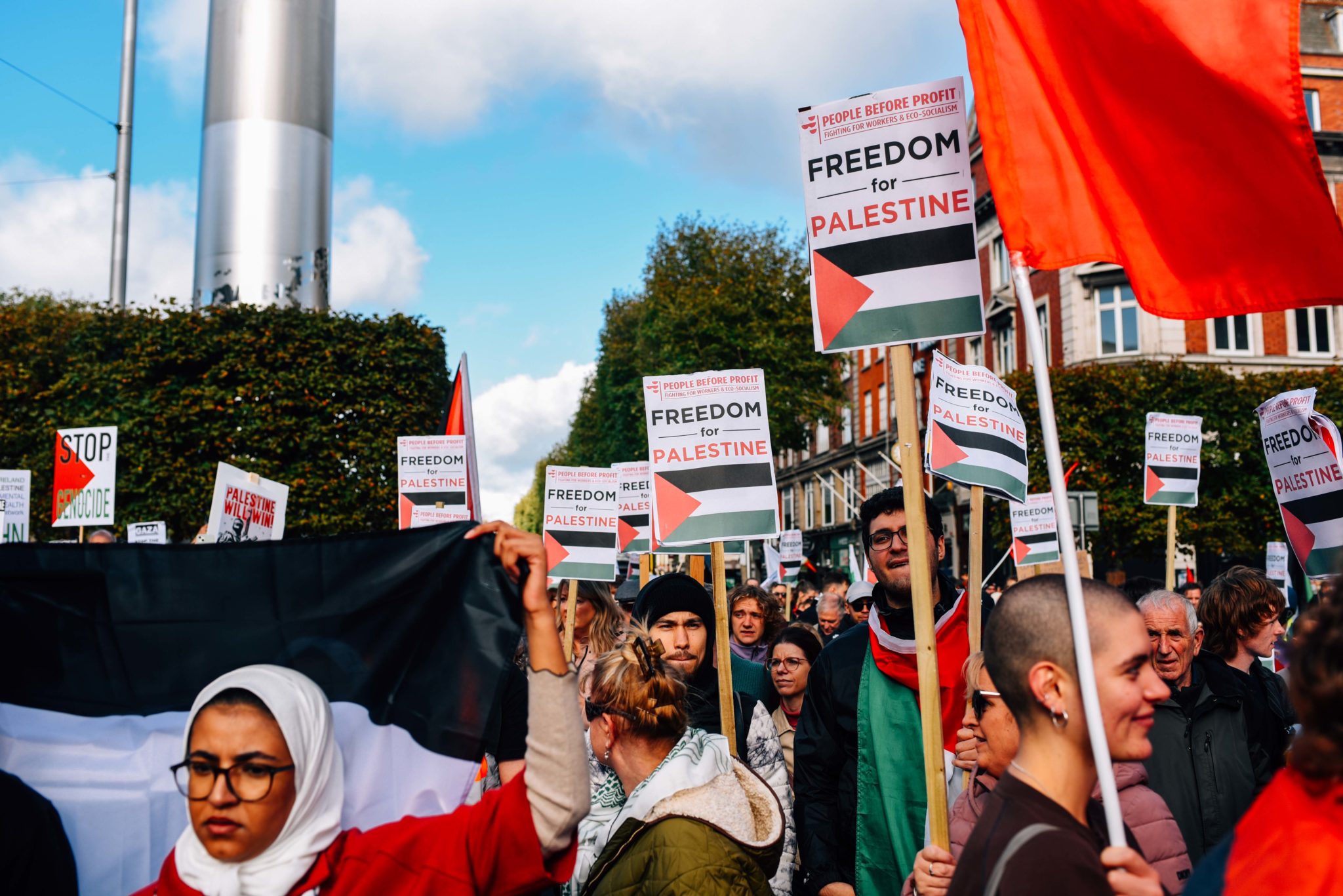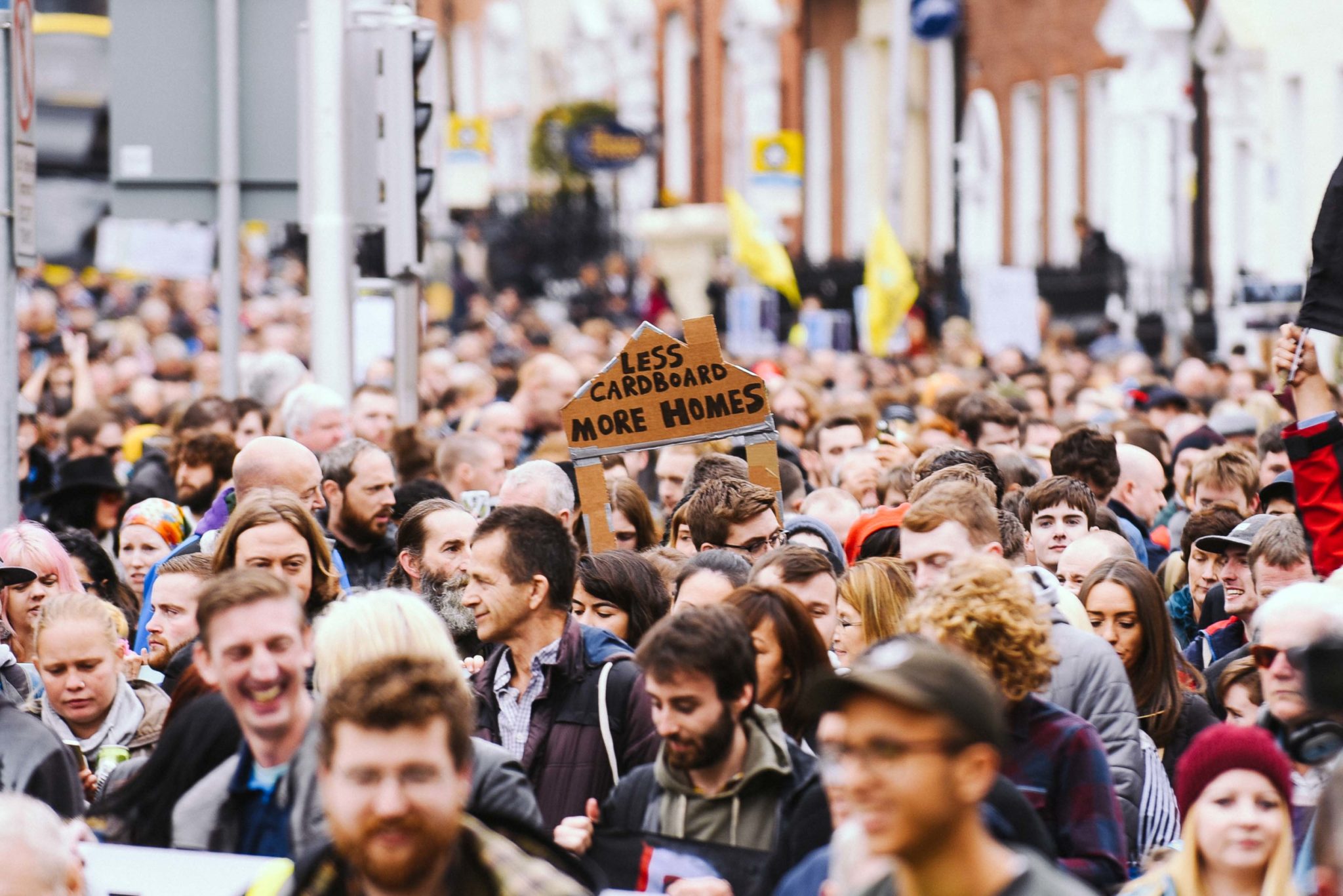- Opinion
- 20 Dec 23
Ireland in 2023: "So much was lost, burned, washed away"

The Whole Hog – looking back on 2023...
The year ends with an abiding sense of loss.
Gone from us are great and beloved artists, Sinead, Shane, Christy. And we’re also at risk of losing the things that gave us confidence in ourselves, like tolerance, open-mindedness, a globalist perspective and a sense of hope and optimism, in ourselves and others.
Yes, there are still places and things that thrill: extraordinary encounters with ordinary people; sun, shadows and fallen leaves in the park; the sound of children playing; food enjoyed with friends; music heard or overheard; an unconditional welcome from your dog.
But this year even good stuff seemed lightly laced with venom. So much was lost, burned, washed away. As the old song goes, Dublin can be heaven, with coffee at eleven, and a stroll through Stephen’s Green. And it’s true, but there’s no filter for what Shakespeare called the alarums and excursions off stage, the sights, sounds and smells of the street, the atonal signatures of dysfunction and detachment.
Helter skelter. When we got to the bottom we went back to the top of the slide. And so it goes, again and again. Insofar as we felt good about ourselves in 2023, we came down with a right old whack with rioting and looting in Dublin’s city centre in November. It’s not new. There was a similar outbreak in 2006, the so-called Love Ulster riot. And, of course, Druid Theatre’s revival of Sean O’Casey’s Juno And The Paycock reminded us of the centre-city looting that accompanied the Easter Rising in the very same streets.
That wasn’t much mentioned in the Decade of Centenaries events. But it should have been. Overall, it was a frustrating year. At best we marked time on housing, health and education.
If anything, we lost ground on climate and drugs. “Rightsizing” in tech and pharma significantly affected both jobs and confidence. Yes, we had a great spell of warm weather in May and June. But we paid for it later, not so much in spades as in buckets.
When it comes to action on climate, Ireland is a small player and we’re well behind in our efforts, notwithstanding that wind produced 43% of our energy last January. We have to do better at home. And we can also deploy our considerable soft power to advocate a global just transition. Mind you, elsewhere that soft power came under severe pressure in ‘23. The Government’s approach to Gaza enraged the Israeli Government. And various Opposition parties and groups pushed back in the opposite direction.
You can’t win! But, faced with the appalling situation in Gaza, the Government’s approach has been carefully nuanced. No support for terror or vengeance, a general support for a two-nation solution, and a quiet insistence on the need for a cessation of violence as a precondition of peace and a long-term resolution.

Pro-Palestine protest in Dublin. Saturday 14th of October 2023. Copyright Miguel Ruiz.
It’s an approach that has gathered significant international support, which may be why the Israeli government keeps trying to discredit it. Russia’s imperialist war on Ukraine has also posed challenges, in particular to our policy of neutrality. Most Irish people support it but without “it” being defined.
Surely, if we mean what we say we should say what we mean, and then equip ourselves appropriately, right? To be truly neutral we need a lot more soldiers, sailors, ships and aircraft. And they have to be well-led and trained and, crucially, not neglected. But a report into bullying, sexual harassment and abuse in the armed forces in March revealed a litany of toxic behaviours and structural failures. Not to mention gross under-equipment.
For example, Irish Air Corps aircraft and Naval Service vessels monitored Russian ships maneuvering off our coast last March. They concluded that the intruders were just avoiding bad weather, so that’s okay. But what if they weren’t? We’d have to call the RAF. As we learned during the year, that’s what we do. It’s an arrangement. Over decades they’ve provided a necessary security umbrella because we don’t have a serious air force.
The annoying thing is that, when deployed, the Irish armed forces are very good indeed. Ask Hezbollah, if you doubt it. Or look again at their role in the seizure of the MV Mathew and its huge illegal drug cargo off Wexford in September. Meanwhile, RTE imploded. Talk about car crash TV. Talk about digging a hole. It was shocking, riveting and saddening. There isn’t even cold comfort. Just a freeze and the sound of blades sharpening.
In the process, the non-business public were introduced to new terms like barter accounts. And members of the Public Accounts Committee grandstanded like there was no tomorrow. Gruesome. There’s not much good news in health or housing either. Our health system is a money black hole. There’s never enough. And that’s it.
As for housing, we can’t build enough. The target set is about 65,000 a year. It should be 100,000. To reach that we need cheap loans and more building materials. And we need more immigrants to build the houses. And we’ll need more housing for the immigrants while they’re building our houses, just as we need more accommodation for the immigrants without whom our health system would grind to a halt.

Take Back the City rally in Dublin. Saturday 22nd of September 2018. Copyright Miguel Ruiz
One could go on but you get the point. We need less managers in our public and semi-state sectors and more leaders. Fewer feet under desks and more, and better, boots on the ground.
But that’s a huge challenge. Thanks largely to neoliberalism, the public service has become corporatised, that is, visioned and managed in the way that people with little or no knowledge of enterprise think businesses are run.
There’s too much of it and yet it’s basically inadequate, static, risk-averse. Look at RTE, the armed forces, health or the Department of Housing, described by one experienced local councillor as “the worst Government Department of all”. Which is saying something.
We’re not prepared for flooding. Not prepared for rioting, or for Russian ships, or for climate change.
In general, our planning is too often based on outdated stats and data, for example housing. And, like our tax base, our discourse is too narrow. Perhaps a note of realism has been sounded after the highs of corporation tax were revealed to be exceptional. But you wouldn’t know that from listening to the Opposition.
Speaking of whom, Sinn Fein emerged from Assembly elections as the largest political party and Michelle O’Neill is now First Minister-designate. The DUP may not know this. Its collective head is so deep in the sand it can’t see or hear a thing. Favourable polls have SF eyeing up a double after the next general election for the Dail and Seanad. The party has shifted towards the centre and, it’s fair to say, the centre has shifted too.
That said, their main raison d’etre was challenged by research published in February. It showed little interaction across the border. Meanwhile, other polls have consistently shown voters in both jurisdictions to be lukewarm on a united Ireland. In favour, yes, but in absolutely no hurry whatsoever.
And, for a party that hectors the Government parties about conflicts of interest, it was more than a little embarrassing for it when contradictions were found in some of its financial statements and, separately, that its financial director Des Mackin is himself a landlord.
Finally, we have to mention the ever-increasing coarsening of society, culture and politics. It’s largely down to the increasingly toxic and divisive impact of social media and 15 years of being able to say appalling things online without any sanction. Verbal viciousness and vituperation are as bad here as anywhere, and in many spheres, too. Sport is bedevilled.
Jaysus, what’s so bad about peace, love and understanding; about civility and kindness; about care, compassion and compromise?
Read The Whole Hog in the Hot Press Annual 2024:
RELATED

- Opinion
- 21 Dec 18
David Bowie Feared Being Murdered At Irish Gig!

- Opinion
- 10 Oct 18








